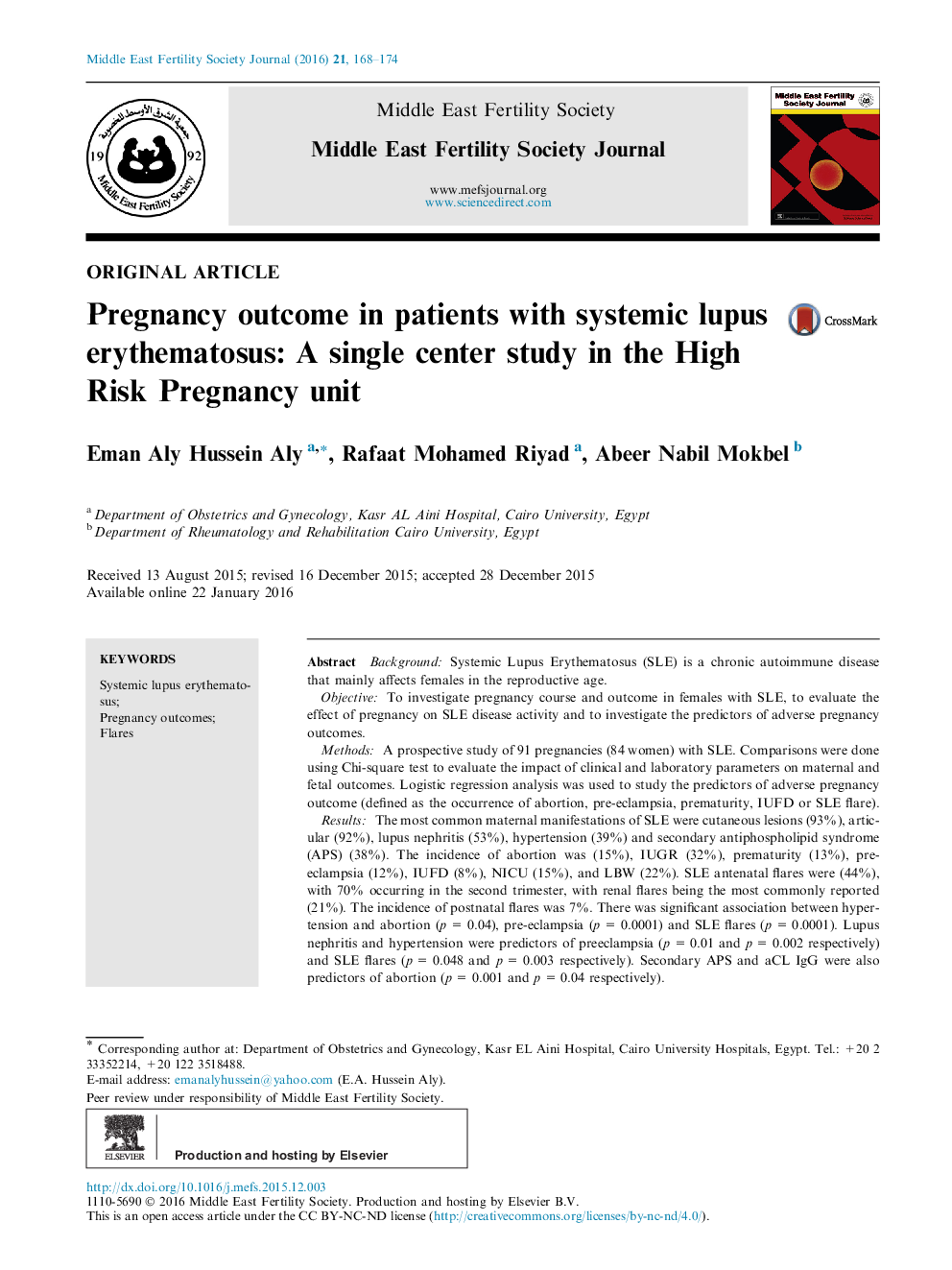| کد مقاله | کد نشریه | سال انتشار | مقاله انگلیسی | نسخه تمام متن |
|---|---|---|---|---|
| 3966041 | 1600755 | 2016 | 7 صفحه PDF | دانلود رایگان |
BackgroundSystemic Lupus Erythematosus (SLE) is a chronic autoimmune disease that mainly affects females in the reproductive age.ObjectiveTo investigate pregnancy course and outcome in females with SLE, to evaluate the effect of pregnancy on SLE disease activity and to investigate the predictors of adverse pregnancy outcomes.MethodsA prospective study of 91 pregnancies (84 women) with SLE. Comparisons were done using Chi-square test to evaluate the impact of clinical and laboratory parameters on maternal and fetal outcomes. Logistic regression analysis was used to study the predictors of adverse pregnancy outcome (defined as the occurrence of abortion, pre-eclampsia, prematurity, IUFD or SLE flare).ResultsThe most common maternal manifestations of SLE were cutaneous lesions (93%), articular (92%), lupus nephritis (53%), hypertension (39%) and secondary antiphospholipid syndrome (APS) (38%). The incidence of abortion was (15%), IUGR (32%), prematurity (13%), pre-eclampsia (12%), IUFD (8%), NICU (15%), and LBW (22%). SLE antenatal flares were (44%), with 70% occurring in the second trimester, with renal flares being the most commonly reported (21%). The incidence of postnatal flares was 7%. There was significant association between hypertension and abortion (p = 0.04), pre-eclampsia (p = 0.0001) and SLE flares (p = 0.0001). Lupus nephritis and hypertension were predictors of preeclampsia (p = 0.01 and p = 0.002 respectively) and SLE flares (p = 0.048 and p = 0.003 respectively). Secondary APS and aCL IgG were also predictors of abortion (p = 0.001 and p = 0.04 respectively).ConclusionCareful monitoring of pregnancy and efficient treatment of SLE can decrease the risks for the mother and the fetus. However, despite improvements in pregnancy outcome of SLE pregnant patients, adverse maternal and fetal outcomes may occur. SLE may flare-up with pregnancy.
Journal: Middle East Fertility Society Journal - Volume 21, Issue 3, September 2016, Pages 168–174
